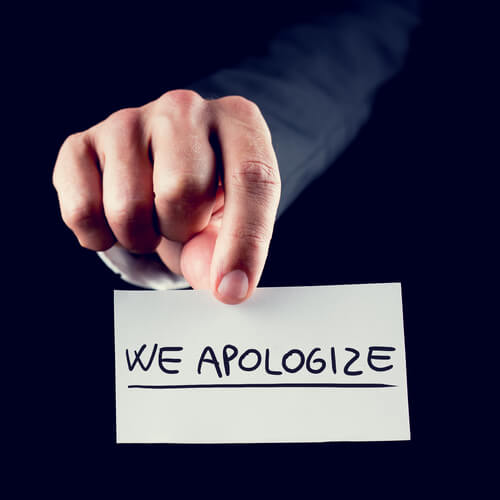


The father with his kids in tow yelled a couple of obscenities at the gate agent. “Why won’t you just open that door and let us on that plane! It’s sitting right there. I can see it!”
“I can’t do that.”
“Why not? The other agent on your late plane said they’d call ahead. We ran as fast as we could. We left at 6:00 this morning. We’ve been traveling all day. Open that G——- door!”
“I can’t do that. You need to go to Customer Service between Gate 25-26 and let them re-book.”
“You …” the dad trotted off, dragging both kids behind him.
Five minutes later the wife shows up at the gate. “You have ruined our vacation! We’ve been traveling 10 hours trapped on your delayed plane! Now you won’t open the door and let us on the plane that’s obviously still sitting here. I can see it!”
The agent kept his head down. Did not even respond.
“I want to talk to a supervisor!”
Without a word, the agent picks up the phone and dials someone. Then, “He’ll be over here after a bit.”
The customer: “This is totally unacceptable! A complete day to travel 2 hours! You’re ruining our vacation.”
The supervisor finally shows up and hauls the wife off across the corridor to talk things over away from the rest of us passengers sitting in the gate area. About 5 minutes later, the dejected wife returns to the gate area, where her husband and the two kids rejoin her, all hope drained from their voices. The wife continues to fill in the husband about her encounter with the supervisor:
“He just told me they were re-booking on the next flight. He never even said he was sorry. Can you believe that? They ruined our entire vacation, and he never even said he was sorry! There wasn’t a sorry bone in his body! At least he could have said he was sorry. Just once!”
I felt her pain. And from the looks on the faces of those seated around them in the gate area, watching the whole thing unfold, they could identify with the gut reaction.
My turn came this past week during our house renovation. The estimator from the renovation company sent off his report to the insurance company for the damage—and then promptly left on vacation for India. He made errors that left things in disarray and put the project “on hold” for 5 weeks.
Upon his return, when learning that his report contained inaccuracies and incomplete information, no apology for the 5-week delay was forthcoming. Just “somebody else fouled up.”
A day later, we hear from his subcontractor. Same complaint: Foul-up, no follow-up, no apology.
Three days later, repeat performance. He misses a scheduled meeting with us by half an hour. When the inconvenience is called to his attention, no apology. Total silence. Results: We’ll not work with the company on future jobs.
Personal accountability for mistakes and the ability to apologize is critical for long-term relationships:
Most people can find it in their heart to forgive—if the other person “owns up.” But that’s a big “if” hurdle for some people to jump. And nobody should be working directly with customers who can’t deal with that ego tripwire.
Does everyone in your organization—from senior leaders to front-line reps—understand the payoffs for apologies and the penalties for their absence?